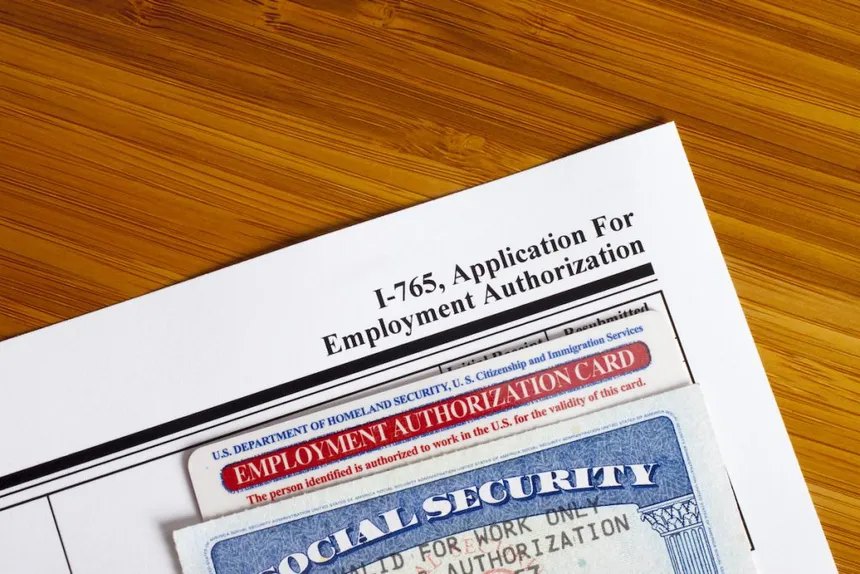
In a move aimed at addressing processing delays and ensuring economic stability, the U.S. Department of Homeland Security (DHS) has announced a major change in its employment policies. Spouses of H-1B and L-1 visa holders will now benefit from an extended automatic renewal period for their Employment Authorization Documents (EADs). This change effectively increases the automatic extension period from 180 days to 540 days, a significant relief for thousands of workers impacted by bureaucratic delays.
Who Benefits?
This policy shift is particularly beneficial for dependent spouses who rely on EADs to legally work in the United States. Among the primary beneficiaries are spouses of H-1B visa holders, a group largely comprising skilled professionals in the tech and engineering sectors. Additionally, L-1 visa holders, who work in managerial or specialized roles for multinational companies, will also see their families gaining from this change. The extended work authorization period is expected to positively impact approximately 100,000 individuals, most of whom are Indian women who face challenges in navigating the U.S. immigration system.
Why the Change?
The U.S. has been grappling with significant processing backlogs for EAD applications, often leaving applicants in limbo as they await renewal. This has created gaps in employment, forcing many to take unpaid leave or even lose their jobs. DHS aims to alleviate these disruptions by giving applicants an extended window of automatic work authorization. This move not only helps employees but also benefits businesses, many of which rely on these workers for critical operations.
The extension also aligns with broader goals of retaining talent within the U.S. economy. By reducing barriers for qualified workers and their families, the Biden administration seeks to strengthen its support for immigrants who play a pivotal role in sustaining industries such as technology, healthcare, and research.
How It Works
The new rule applies to eligible applicants with timely filed EAD renewal applications. Those who file their renewals on or after May 4, 2022, will automatically receive the extended 540-day work authorization. This gives workers and employers nearly 18 months of assurance, providing ample time for the adjudication process to be completed.
A Lifeline for Families
For many immigrant families, this policy is more than a procedural change—it is a lifeline. H-4 visa holders (dependents of H-1B workers) have long struggled with work permit delays, jeopardizing their financial stability and career progression. The extended authorization period provides breathing room and helps prevent disruptions that could force families to leave the U.S.
Challenges Ahead
While this development is a welcome step forward, there are concerns about its longevity. Immigration policies in the U.S. often shift with changes in administration. Future leadership could potentially amend or rescind this rule, creating uncertainty for those who rely on it. Advocacy groups are urging the government to implement additional reforms to make such benefits permanent and ensure predictability for immigrant workers and their families.
Broader Implications
This policy reflects a broader recognition of the contributions made by immigrant workers and their families to the U.S. economy. By addressing administrative hurdles and reducing employment disruptions, DHS not only provides relief to affected individuals but also bolsters the nation’s ability to attract and retain global talent.
The automatic extension period for EADs is a practical solution to a long-standing issue, but the journey for many immigrant families remains fraught with challenges. As the policy unfolds, its impact will likely shape discussions on immigration reform and the role of skilled workers in the U.S. economy.
